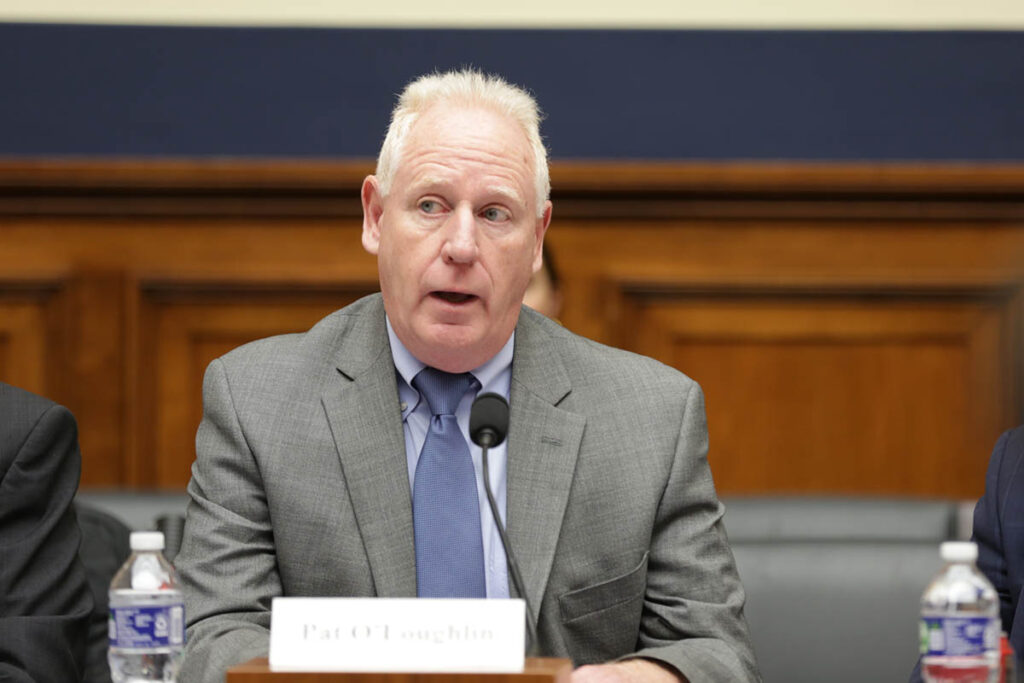
Federal energy policies that rush to replace fossil fuel power plants with renewable energy are threatening grid reliability at a time when people need dependable power more than ever to carry them through extreme weather events, the CEO of Ohio Rural Electric Cooperatives told House lawmakers Thursday.
“Wind and solar are great, but their intermittent nature and lack of responsiveness to changing electric demand make these resources less valuable and less reliable than conventional fossil fuel generation,” Patrick O’Loughlin told Republican members of the House Energy and Commerce Committee at a roundtable discussion on energy security.
O’Loughlin is also the CEO of Buckeye Power, a generation and transmission cooperative that supplies power to 25 distribution co-ops. Its generation mix includes coal, natural gas, hydropower, bio-gas and solar.
In Ohio, the number of coal-fired generating plants has plunged from 21 facilities with over 20,000 megawatts in 2009 to five plants with less than 8,000 megawatts today, O’Loughlin said.
He pointed to the 2022-23 Winter Reliability Assessment by the North American Electric Reliability Corp., which warned that increased demand for electricity and reduced generation capacity present unprecedented threats of power shortages and disruptions this winter, especially in areas with extreme, prolonged cold.
The report urged state regulators to “manage the pace” of fossil-fuel-powered plant retirements to ensure an adequate supply of electricity. It also recommended “including extreme weather scenarios in resource and system planning.”
Power plant pollution has decreased substantially during the past 20 years, with carbon dioxide emissions from U.S. power generation falling 33% from 2005 levels, O’Loughlin said. Electric production rose slightly while those emissions dropped, he said.
The need for reliable power will continue to grow, O’Loughlin said.
“Electrification of transportation and buildings will further increase electric demand, allow for further expansion of renewable generation and other technologies, but will require more reliability, not less.”
While new technologies are being developed, proven power sources must continue, he said.
“Our electric power system works on the principles of physics and engineering, not aspirational goals. And today more than ever, people are counting on us to get that right.”
Erin Kelly is a staff writer for NRECA.